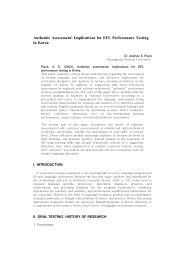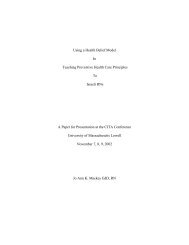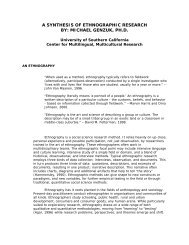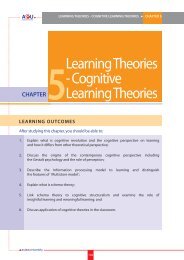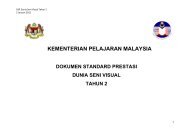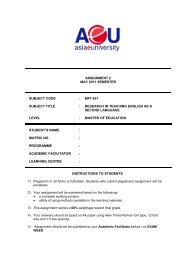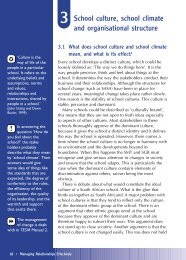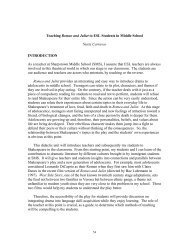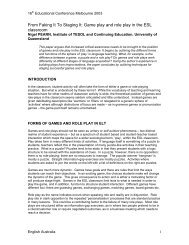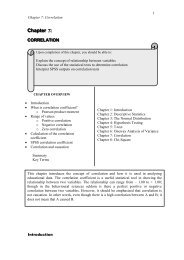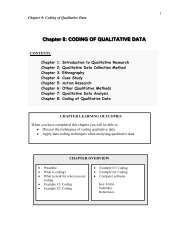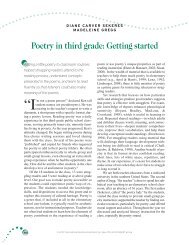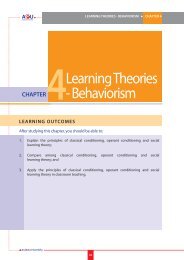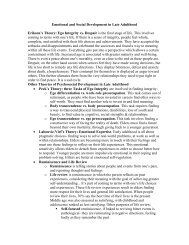Learning Theories - Cognitive Learning Theories CHAPTER
Learning Theories - Cognitive Learning Theories CHAPTER
Learning Theories - Cognitive Learning Theories CHAPTER
Create successful ePaper yourself
Turn your PDF publications into a flip-book with our unique Google optimized e-Paper software.
<strong>CHAPTER</strong> 5 l LEARNING THEORIES - COGNITIVE LEARNING THEORIES<br />
Mnemonics<br />
Multi-store model<br />
Peg word<br />
Perceptual organisation<br />
Psychoanalysis<br />
Retrieval<br />
Psychoanalysis<br />
Rote learning<br />
Many mnemonics take the form of acronyms.<br />
Each letter of a term is associated with new<br />
concepts, or new concept information is<br />
associated with phrases design to link the terms.<br />
Example “HOMES” for names of the Great<br />
Lakes (Huron. Ontario, Michigan, Erie, and<br />
Superior) in United States of America.<br />
The multi-store model of memory is an<br />
explanation of how memory processes work.<br />
The model was first described by Atkinson and<br />
Shiffrin in 1968. It consists of the three stages<br />
of the memory: sensory register, short term<br />
memory and long term memory.<br />
Systems of associating items with cue words<br />
usually place serially. eg. to remember the first<br />
prime minister: Tengku Abdul rahman baling<br />
batu (satu); tun razak suka burung tempua<br />
(DUA).<br />
The tendency to organize facts or objects which<br />
we percept visually.<br />
A method of psychoteraphy developed by<br />
Freud based on his belief that the root of all<br />
psychological problem is unconscious conflict<br />
between the id, the ego, and the superego.<br />
The process of “finding” information previously<br />
stored in memory.<br />
A method of psychoteraphy developed by<br />
Freud based on his belief that the root of all<br />
psychological problem is unconscious conflict<br />
between the id, the ego, and the superego.<br />
Is where you memorize something without full<br />
understanding and you don’t know how the<br />
new information relates to your other stored<br />
knowledge. For our example, lets say we learn 5<br />
facts in a math course during a full semester by<br />
rote learning. Expository learning.<br />
137<br />
i.<br />
137



